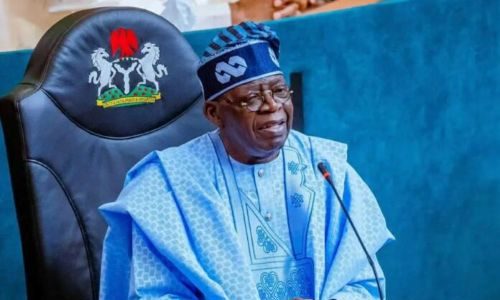Tinubu Declares State Police a National Imperative, Urges Constitutional Reform to Address Insecurity

Abuja, Nigeria – President Bola Ahmed Tinubu has called for urgent constitutional reform to overhaul Nigeria’s national security architecture, declaring that the establishment of state police is no longer optional but a “national imperative.”
Speaking through the Minister of Defence, Mohammed Badaru Abubakar, at a high-level legislative dialogue on constitutional review and national security in Abuja on Monday, Tinubu said Nigeria’s centralised policing system has outlived its usefulness in the face of rising terrorism, cybercrime, banditry, and farmer-herder clashes.
“The debate over state police is no longer theoretical. It is grounded in the daily fears and lived anxieties of Nigerians,” Tinubu said. “Our Constitution must evolve or risk becoming a danger to the very unity it was meant to protect.”
The president advocated for moving policing from the Exclusive to the Concurrent Legislative List, enabling states to establish their own forces while retaining federal oversight.
He also emphasized the urgency of constitutional clarity on border security, local policing roles, and coordination among security agencies.
While highlighting recent gains in security operations—including the dismantling of terrorist camps and reduction in piracy—Tinubu warned that structural limitations still hinder lasting impact. “Without constitutional backing for decentralised policing, these initiatives will remain limited in impact,” he said.
House Speaker Abbas Tajudeen and Deputy Speaker Benjamin Kalu echoed the call for reform, pledging the National Assembly’s readiness to enact legislation that aligns with current realities.
Chief of Defence Staff Gen. Christopher Musa proposed sweeping amendments, including clearer operational mandates, courts-martial reforms, and new legal tools for combating terrorism. He called for a modern security legal framework that matches evolving threats like cyber warfare and hybrid insurgency.
Also speaking, National Security Adviser Nuhu Ribadu, represented by Maj. Gen. Adamu Laka, underscored the link between security and a responsive constitution, saying Nigeria’s stability depends on institutional reform, decentralisation, and public trust.
The dialogue, organised by the House Committee on Constitution Review, is expected to shape critical amendments aimed at securing Nigeria’s future through stronger, decentralised, and accountable security systems.


